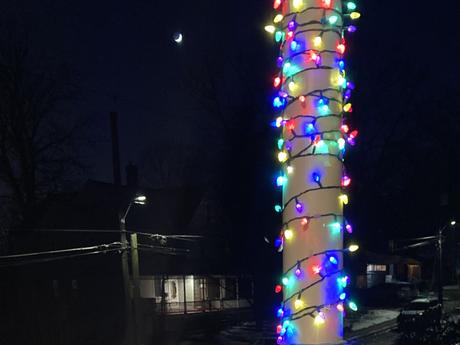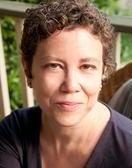
No one was dreaming of this Christmas.
A Christmas without family, friends, or going to church. A Christmas without choirs, or caroling. Even in that fictional scenario without packages, boxes, and bags, when the Grinch tried to stop Christmas, people imagined they would always be able to stand in a circle and clasp hands. But not this year.
Early in the pandemic, I wrote about a silver lining, of being able to gather on zoom with people from across the country and the globe. I wrote of being able to zoom into accessible services anywhere, of trying out different religious communities through the miracle of technology. If you are looking for a Christmas Eve service designed by and for interfaith families, you are welcome to zoom in to the Interfaith Families Project in DC this year.
But, here we are, ten months in, and the silver linings are all wearing thin. We try to appreciate the calm, the stillness, the intimacy, perhaps the shift away from commercialism, of holidays this year. Or perhaps we appreciate the ability to more easily control holiday menus (in our house, this means more vegan options!).
But the pandemic is surging. Our relationships with those we live with full-time may be fraying. And depression, major and minor, is now pandemic too. The Christmas music that feels the most on point this year may be the Judy Garland singing the mournful " Have Yourself a Merry Little Christmas," or the wistful Charlie Brown special classic " Christmastime is Here."
In the past, I have written and spoken about the importance in interfaith families of feeling empathy for each other, of being gentle with our partners and children in this season of long nights and short, cold days. And that has never been more true than this year, on this solstice, at this pandemic apex.
I had not dreamed of some of the challenges facing interfaith families this year. Most interfaith families in the US, Canada, and Europe have one Christian partner. For many who are atheist, agnostic, Jewish, Muslim, Hindu, Sikh, Buddhist, Jain, or Pagan, having a Christian partner has meant, in the past, celebrating Christmas with our partner's extended family. Some of these interfaith families have preferred not to have a Christmas tree, or lights on the house, or prepare a Christmas Eve Feast of the Seven Fishes, or hang stockings, but have been glad to experience these Christmas traditions every year at the homes of a partner's parents or extended family.
This year, it is not possible, not safe, to celebrate at Grandma's house. (And some of us have lost grandparents, and parents, in the epidemic). Instead, isolated at home, many interfaith families have had to make decisions about whether to have a first Christmas tree, a first visit from Santa, hang lights for the first time outdoors. In some families, a partner who did not grow up with these traditions may now feel new pressure to host them, adding to holiday sadness. In some families, a partner who grew up celebrating these traditions with extended family may feel the additional sadness of celebrating in isolation with a partner who did not grow up with those traditions. And, some interfaith families have already been through the parallel sadness of negotiating these same intersections of interfaithness and pandemic isolation over Diwali, or Hanukkah. For Pagans, the same may be true for the winter solstice, and Yule.
There are no right or wrong answers to the question of how to navigate this very hard season, in this very hard year. For some families, it may feel right to " haul out the holly" and "turn on the brightest string of lights." For others, it may feel right to just try to let it go, and hibernate through the winter, until spring is here at last. As in all years, as in all families, the right way for your family to be an interfaith family can only be discerned through intimate conversations. But in every case, and especially this year, we are called on to be as empathetic as we can possibly be, and to be extra gentle with each other, as we await the return of the light, and our turn for the vaccine.
Journalist is an interfaith families speaker, consultant, and coach, and author of Being Both: Embracing Two Religions in One Interfaith Family (2015), and The Interfaith Family Journal (2019). Follow her on Twitter @susankatzmiller.
